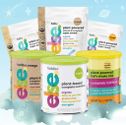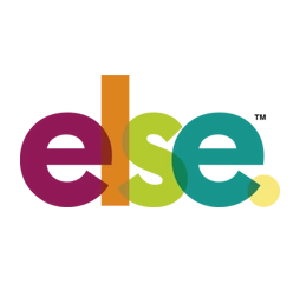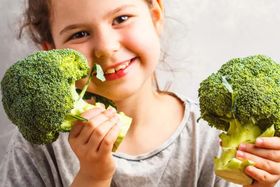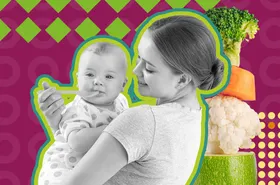ELSE: A Helpful Addition to Plant-Based Diets
Updated October 11, 2024
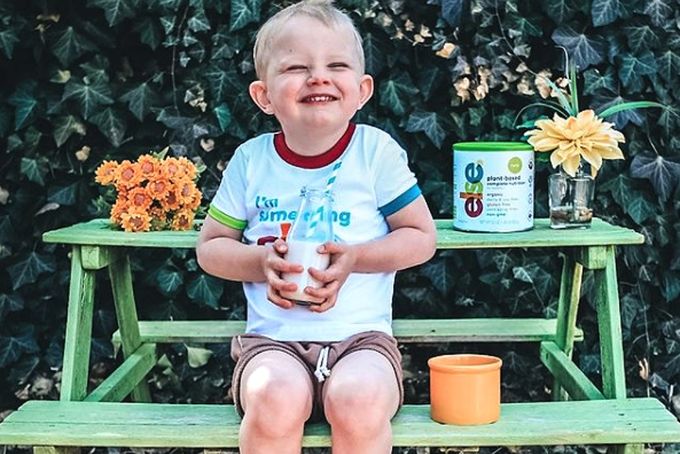
Vegetarian or plant-based diets have become increasingly popular. Although these diets have been an integral part of some cultures for decades, there is currently more widespread interest in them. In 2019, India was found to have the largest number of vegetarians (31%), mainly due to religious dietary restrictions (source). The least number of vegetarians was seen on the continent of Africa, primarily due to the strong cultural importance of meat in meals. Among the rest of the world’s population, rates of vegetarianism range from 4-15%, with numbers steadily rising. This is not only due to the environmental benefits of consuming fewer foods from animal sources, but also because of the health benefits.
A Vegetarian Diet Can Be a Healthy Diet
“Vegetarian” is an umbrella term for several versions of plant-based diets (source):
| Diet | Includes | Excludes |
|---|---|---|
| Lactovegetarian | Includes dairy | Excludes meat, poultry, fish, or eggs |
| Ovo-vegetarian | Includes eggs | Excludes meat, poultry, fish, or dairy |
| Lacto-ovo vegetarian | Includes eggs, dairy | Excludes meat, poultry, or fish |
| Pescatarian | Includes fish | Excludes meat, dairy, eggs, or poultry |
| Vegan | | Excludes meat, dairy, eggs, fish, or poultry |
| Rastafarian | (restrictive vegan) | |
Research studies have documented health benefits when vegetarian diets are consumed properly. Over the longterm, such diets can reduce the risk of developing hypertension, high cholesterol, and some types of cancers (source). Children who consume a vegetarian diet are less likely to complain of constipation than non vegetarian children.
Despite these outcomes, there is a concern for certain nutritional deficiencies that are unique among vegetarians. For example, many plants can provide enough dietary protein, but the daily consumption must be adjusted to account for the lower digestibility of plant proteins (source). Under the age of two, protein intake may need to be increased by 35%, and by 15% to 30% for children between the ages of two to six. Lower amounts of daily protein are adequate for older children.
More concerning, however, is the potential for a vitamin deficiency. Iron intake, which is very important for infant and child brain function, may be limited in vegan and lacto-ovo-vegetarian diets. Adequate consumption of calcium and vitamin D, needed for bone mineralization, is also a concern among vegan children. Although research shows that a breastfed vegan child infants can receive an adequate amount of calcium from breast milk, the risk of calcium deficiency increases once breastfeeding is discontinued (source). Additionally, the risk of a vitamin B12 deficiency is high among vegans, so supplementation is necessary to prevent megaloblastic anemia. Vegan diets are also low in docosahexaenoic acid (DHA), one of the essential fatty aids necessary for brain myelination under the age of two. Those who follow a Rastafarian diet are may experience a vitamin A deficiency if not consuming at least three servings of fruits and vegetables high in beta-carotene daily (source).
Clinical Perspectives
There are a variety of situations in which a vegetarian or vegan diet is adopted. When parents make this choice, there is a purposeful effort to ensure children receive a balance of proteins, healthy fats, and a large amount of fruits and vegetables. Mothers often continue breastfeeding after their child’s vegetarian infant’s first birthday, and wait to introduce supplemental foods until six months old. Growth parameters are closely monitored at well care visits, especially if a vegan diet is followed. These infants and children have a risk of lower height and weight percentiles.
Alternatively, there are children and adolescents who state that they “never really liked meat,” or who chose choose to avoid animal foods vegetarian diet for personal, ethical reasons. Some of these very savvy kids research and succeed in eating a variety of plant-based foods while taking the appropriate vitamin supplements. Others, however, are what I call “junk food vegetarians.” Their diets consist of highly processed foods, many refined carbohydrates, minimal protein, and little to no fruits or vegetables. These patients are most at risk for nutritional deficiencies due to their very limited, low nutrient diets. Because of controversy regarding the use of hexane in the processing of some soy meat alternatives, consumption of these processed foods may be a concern (source). Adolescents, in particular, choose these quick options for plant-based protein because they fit easily into a busy school and extracurricular schedule.
Recommendations for a Proper Vegetarian Diet
When done properly, vegetarian diets can be appropriate for infants, children, and adolescents. The Journal of Academy of Nutrition and Dietetics provides guidelines specific for each age group with their “VegPlate Junior.” (source). This is a vegetarian plate graphic that shows the proportions of grains, proteins, vegetables, fruits, nuts, and fats that should be consumed at each meal. There is an emphasis on healthy food that contains vitamins B12 and D, calcium, and essential fatty acids. For infants, breastfeeding or the use of a soy-based milk formula is recommended until age one. Recommendations are given for the introduction of first foods, and for daily calorie caloric goals up to age 17. Food alone, however, cannot adequately supply vitamin B12 for vegans, so supplementation is necessary. (source)
Based on these considerations, providing a balanced, vitamin-rich vegetarian diet can be a challenge for parents. Toddlers and some older children can be “picky eaters.” Adolescents may adopt unhealthy eating habits such as skipping meals or choosing highly processed vegetarian sources of protein options, especially if they are the only vegetarian in the family. A nutritional supplement to provide additional vitamins, protein, and healthy fats would be ideal for this population. A plant-based option would be a welcome addition to the market.
The Possibilities of ELSE
ELSE is a unique nutritional beverage that is perfect for vegetarians. It is a plant-based product, made from almonds and buckwheat. Almonds not only provide protein but are a significant source vitamin E and monounsaturated fatty acids (source). Often of great importance to those who choose this way of eating, ELSE is both organic and non-GMO. A key benefit, however, is that ELSE can be a source of the vitamins often lacking in the diets of many vegetarians. Unlike other nutritional drinks on the market, ELSE has no added sugar. An apple concentrate is the only sweetener. Vegan diets are often low in essential fatty acids, and finding a plant-based vegetarian sources can be difficult. ELSE, however, has micro-algae derived versions of DHA and arachidonic acid (ARA), therefore, maintaining the plant-based concept. Additionally, this innovative product is minimally processed without the use of hexane or other concerning methods.
It is likely that more of the world’s population will begin to incorporate a vegetarianism diet into their lifestyle. A product like ELSE can provide parents with a way to ensure that their vegetarian or vegan child receives the nutrients needed for optimal growth and development. ELSE is a unique addition to the market that can benefit many vegetarian children.
The content and advice provided in this article is for informational purposes only and is not a substitute for medical diagnosis, treatment, advice for specific medical conditions. Always consult a pediatrician to understand the individual needs of your child.




